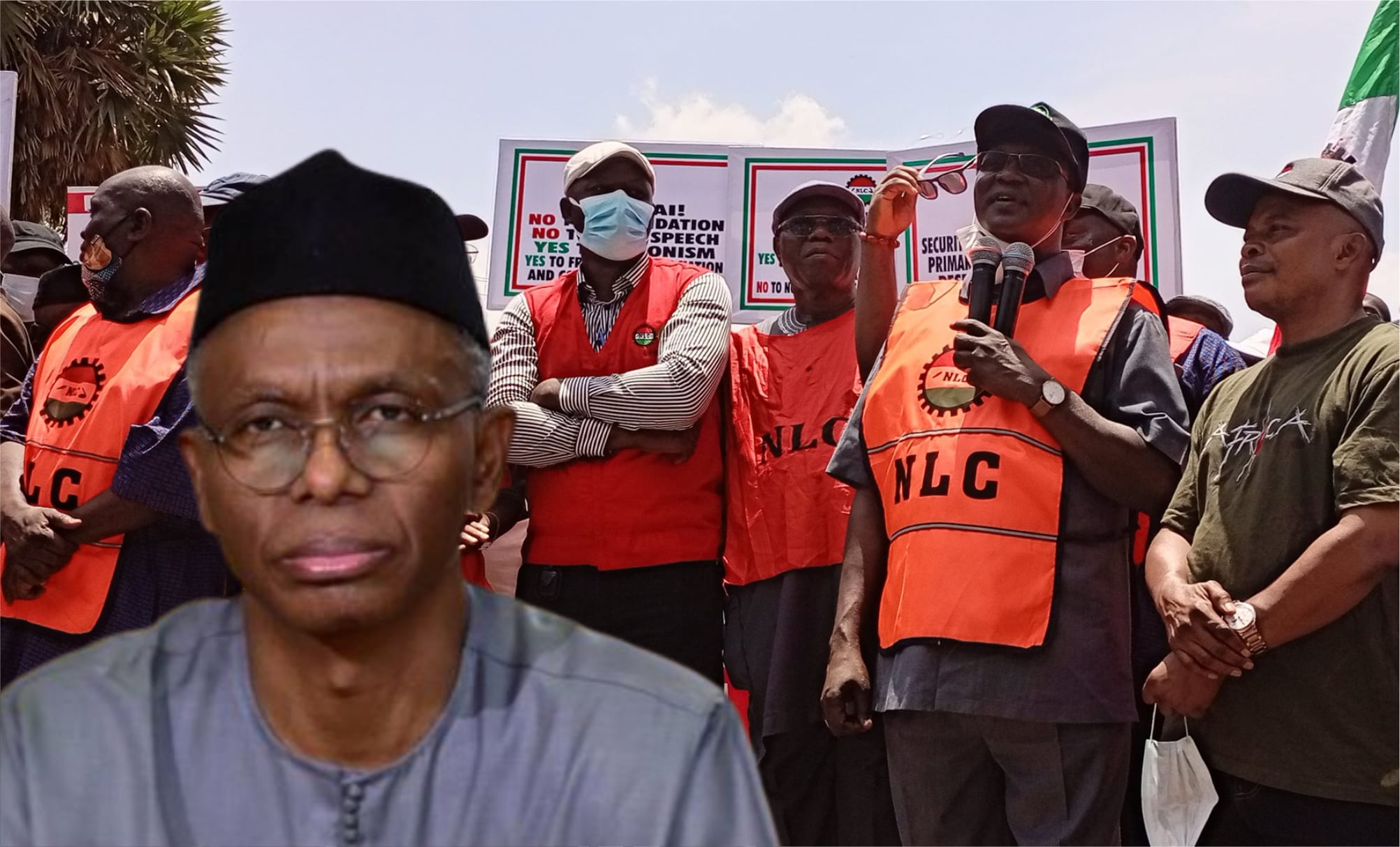For several days, the public space in Kaduna State was in severe turbulence as a result of a faceoff between the state government and the Nigeria Labour Congress (NLC), over the mass retrenchment of civil servants in the state. Citing financial insolvency and inability to continue sustaining the salary bill for the workers, the government had earlier disclosed its plans to downsize the work force, in order to trim the salary bill to manageable size.
Expectedly, the sack plan attracted appeals to backtrack on the initiative just as the NLC warned that workers would go on strike if the government proceeded with the sack action.
- ‘Dining with the devil’: How villagers co-habit with bandits
- The incursion of Boko Haram, other terrorist
However, in flagrant disregard of all entreaties, the government on April 6, 2021, issued sack letters to 4,000 local government workers who are generally believed to be just the first batch of the mass sack exercise. The NLC responded to the workers sack by embarking on strike on Monday, May 16, 2021, with the participation of 14 affiliated unions, a development which disrupted social and economic activities across the entire Kaduna State.
In its response, the Kaduna State government tried to scuttle the action by unleashing panicky, punitive counter measures against the NLC leadership and any civil servant in support of it. Taking personal charge of the counter measures to the strike, the Governor of the state, Nasir Ahmed el-Rufai, denigrated the NLC leaders by referring to them as bandits and economic saboteurs, ordering for their arrest by the police and even launching a man-hunt for their capture as well as possible maltreatment and humiliation. The government was also suspected to have unleashed bands of armed thugs to attack and dislodge the peacefully protesting workers, leading to several of the latter sustaining severe injuries. Not done with the foregoing, the governor tried to punish civil servants in the state who supported the strike in the course of which he sacked all nurses in the pay of the government below Grade Level 14, as well as lecturers in the Kaduna State University. The NLC later called off the strike in deference to the intervention of several well-meaning interests, especially the Federal Ministry of Labour and Employment, which called for a meeting of both parties. Subsequently, a committee was set up to look into the issue.
According to the National President of the NLC, Comrade Ayuba Wabba, “Organised labour is in Kaduna to tell the world the truth of what the workers, pensioners, students and other citizens in the state are going through besides the lies being peddled by media platforms on El-Rufai’s payroll. The situation of the workers in the state is so pathetic that thousands of them have been laid off from their sources of livelihood without the state government making any effort to pay them their entitlements’’.
The development in Kaduna remains most unfortunate as the state was the first to demonstrate worker friendliness by leading other states to pay the approved minimum wage. The state government has also done very well in its internal revenue generation drive. For events to degenerate to a state whereby that same government is at the receiving end of workers rage is disturbing. It is without doubt that the hardline posture of the governor did not help matters but only aggravated the situation. Particularly instructive is the sacking of workers without due process as prescribed by law and in the midst of the prevailing multi-level crises situation across the country. Even as the Kaduna State government cited dwindling resources for its action, there are other ways to manage scarce resources without the extreme measure of mass sack of workers.
It is also sad that in a bid to prove a point, the government allowed residents of the state to suffer unduly, for as long as the strike lasted, they were without water, electricity and other basic amenities. That should not have happened. In fact, anything that could lead to a shutdown of the economy of Kaduna State should have been avoided, considering its strategic position in the country and the fact that the same state is complaining of dwindling resources.
We urge the parties involved to cooperate with the committee set up by the federal government to ensure that a lasting solution is found to the crisis.
This should serve as a lesson to all state governors that the place of dialogue cannot be overemphasised in relating with their workers. Had it been the Kaduna governor carried all parties along in his decisions and held talks with relevant stakeholders, things would have been different.

 Join Daily Trust WhatsApp Community For Quick Access To News and Happenings Around You.
Join Daily Trust WhatsApp Community For Quick Access To News and Happenings Around You.


